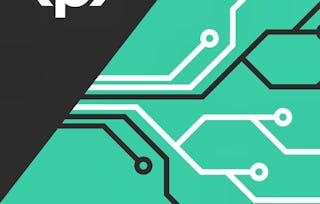You’ve hit a major milestone as a computer scientist and are becoming a capable programmer. You now know how to solve problems, write algorithms, and analyze solutions; and you have a wealth of tools (like data structures) at your disposal. You may now be ready for an internship or (possibly) an entry-level software engineering job. But can you land the internship/job? It depends in part on how well you can solve new technical problems and communicate during interviews. How can you get better at this? Practice!

Mastering the Software Engineering Interview

Mastering the Software Engineering Interview
This course is part of Object Oriented Java Programming: Data Structures and Beyond Specialization



Instructors: Mia Minnes
71,281 already enrolled
Included with
555 reviews
Skills you'll gain
Details to know

Add to your LinkedIn profile
See how employees at top companies are mastering in-demand skills

Build your subject-matter expertise
- Learn new concepts from industry experts
- Gain a foundational understanding of a subject or tool
- Develop job-relevant skills with hands-on projects
- Earn a shareable career certificate

There are 6 modules in this course
Welcome to our course on effectively communicating your technical abilities. This course focuses on landing a technical job and excelling in a technical role. To succeed in job interviews, you’ll need to be able to confidently articulate your ability to solve challenging problems and come up with new solutions under potentially stressful conditions. After getting a technical job, the role of communication increases even more. You’ll need to work with other members of the team, communicate technical challenges and successes, and potentially sell the value of your work to those outside the company. Our goal is that by the end of this course each and every one of you understands the importance of technical communication, and has received constructive feedback on areas of potential improvement. In achieving this goal you will also learn about algorithmic thinking on the fly, how to evaluate a good interview answer to a difficult technical problem, and how “soft” skills impact interview outcomes. In this module, we’ll begin to see what a technical interview looks like, from the perspective of a major tech company. We’ll then focus on how to best get the interview in the first place. If you're not in the job market right now, you might want to skim the videos in this module and skip ahead to the Resume Critique (for insights about how to present yourself in writing) or the Introductions assignment (on effectively presenting yourself in person).
What's included
15 videos5 readings6 assignments3 discussion prompts
What's included
1 reading1 assignment1 peer review
Now that you’ve gotten warmed up, it’s time to practice your coding skills. One of the things you’ll almost certainly be asked to do during a technical phone interview is to code up a solution to a problem in a shared text document (e.g. Google doc) while you are on the phone with the interviewer. This experience can be intimidating, unfamiliar and humbling if you are not prepared, so this week we will give you lots of practice and tips for getting through this part of the interview with flying colors.
What's included
12 videos3 readings6 assignments
This week, we’re going to focus on how to speak about your experiences working on projects and how to speak about the technical problems you’ve experienced and how you’ve solved those problems. We’ll introduce the STAR (Situation, Task, Action, Results) model for presenting your work, and discuss how to and how not to present the problem you worked on and the solution you developed. We’ll also discuss the communication skills that are critical to this task. It’s a fun week with lots of examples (both good and bad), which ends with an assignment where you will present your own work on video and submit this video for peer review.
What's included
16 videos1 reading1 assignment
What's included
1 video1 assignment1 peer review1 discussion prompt
As we saw in week 2, coding on the fly can be a difficult task! In this final week of the course we’ll revisit the skill of live problem solving by looking at how to solve more challenging algorithmic problems (and write the code associated with the solution) on the whiteboard. You’ll recognize these problems as “classic” interview problems you’ve probably heard a lot about, designed to test your problem solving skills as well as your analysis and coding abilities. Don’t worry, we’ll teach you how to approach them with confidence through a 6-step process to addressing technical questions (hint: you don’t have to produce the perfect solution on the first try!). We’ll show you how to use this process in a number of examples. But of course, there is no substitute for practice, so we’ll set you up with how to train and evaluate yourself.
What's included
17 videos5 readings5 assignments
Earn a career certificate
Add this credential to your LinkedIn profile, resume, or CV. Share it on social media and in your performance review.
Instructors



Offered by
Explore more from Software Development
 Status: Free Trial
Status: Free Trial Status: Preview
Status: Preview Status: Free Trial
Status: Free Trial Status: Free Trial
Status: Free Trial
Why people choose Coursera for their career

Felipe M.

Jennifer J.

Larry W.

Chaitanya A.
Learner reviews
- 5 stars
71.58%
- 4 stars
18.88%
- 3 stars
5.57%
- 2 stars
1.79%
- 1 star
2.15%
Showing 3 of 555
Reviewed on Jun 6, 2016
I strongly recomen this course, it has helped to create a great CV, and above all it gave a great confidence towards the Interview.
Reviewed on Oct 21, 2017
Thank you for this course! I found a lot of interesting subjects during this journey!
Reviewed on Jun 18, 2019
The course is best for developing your fundamental concepts and gives great tips on how to approach an interview.

Open new doors with Coursera Plus
Unlimited access to 10,000+ world-class courses, hands-on projects, and job-ready certificate programs - all included in your subscription
Advance your career with an online degree
Earn a degree from world-class universities - 100% online
Join over 3,400 global companies that choose Coursera for Business
Upskill your employees to excel in the digital economy
Frequently asked questions
To access the course materials, assignments and to earn a Certificate, you will need to purchase the Certificate experience when you enroll in a course. You can try a Free Trial instead, or apply for Financial Aid. The course may offer 'Full Course, No Certificate' instead. This option lets you see all course materials, submit required assessments, and get a final grade. This also means that you will not be able to purchase a Certificate experience.
When you enroll in the course, you get access to all of the courses in the Specialization, and you earn a certificate when you complete the work. Your electronic Certificate will be added to your Accomplishments page - from there, you can print your Certificate or add it to your LinkedIn profile.
Yes. In select learning programs, you can apply for financial aid or a scholarship if you can’t afford the enrollment fee. If fin aid or scholarship is available for your learning program selection, you’ll find a link to apply on the description page.
More questions
Financial aid available,
¹ Some assignments in this course are AI-graded. For these assignments, your data will be used in accordance with Coursera's Privacy Notice.

